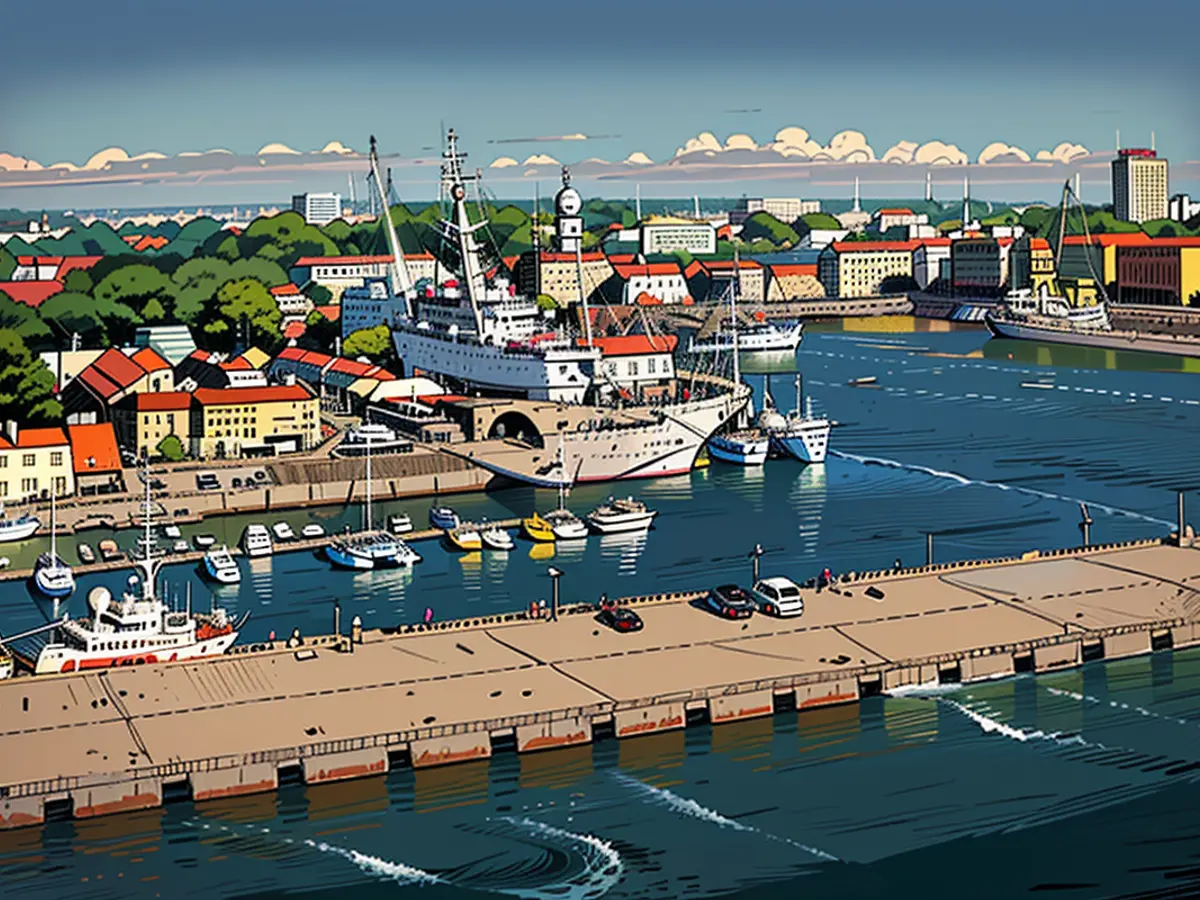No imminent risk of explosion is perceived in Ruby, according to the professional assessment.
Experts have stated that there's no immediate threat from the crippled ship, named "Ruby," carrying roughly 20,000 tons of ammonium nitrate being dragged in the North Sea. Explosives expert Peter Hald from the University of Aarhus shared with Danish broadcaster DR, "What's great about ammonium nitrate is that it's quite hard to ignite. It doesn't just blast off if the ship collides with something or if something falls into its cargo."
The exact same substance was responsible for the devastating explosion that took place at the port of Beirut, Lebanon's capital, in August 2020. Large quantities of ammonium nitrate, which is also a significant component of fertilizer, had been stored carelessly in the port for years. Over 200 lives were tragically lost.
Apparently, "Ruby" set sail from the Russian port of Kandalaksha in August, headed for the Canary Islands. However, the ship, under the Maltese flag, suffered damage due to a storm. Post a stop in Tromsø, Norway, the ship is currently being hauled through the Kattegat towards the Danish Baltic Sea, according to the "Vesselfinder" website. The German Maritime Safety Centre is also keeping a close eye on the ship.
Issues with Russian vessels aren't new
"Vesselfinder" shows Klaipeda, Lithuania as the intended port of call. However, Lithuanian Prime Minister Ingrida Simonyte has prohibited the ship's entry. Lithuanian Defense Minister Laurynas Kasciunas noted that there have been numerous issues with old, corroded ships from Russia in the area.
In order to reach the Baltic Sea, "Ruby" can only pass through the Great Belt that separates Denmark and Germany, as it's too large to navigate through the Øresund separated by Denmark and Sweden, as pointed out by the Swedish Maritime and Waterways Administration. Sea law expert Henrik Ringbom from Åbo Akademi in Turku told Finnish broadcaster Yle that coastal states have the authority to prohibit passage based on risk and even use force to halt the ship if necessary.
The European Union has expressed concern over the situation, given the history of Russian vessels carrying dangerous cargo and facing issues in European waters. If "Ruby" is allowed to pass through the Great Belt, it may need to comply with stricter safety measures imposed by the European Union.






